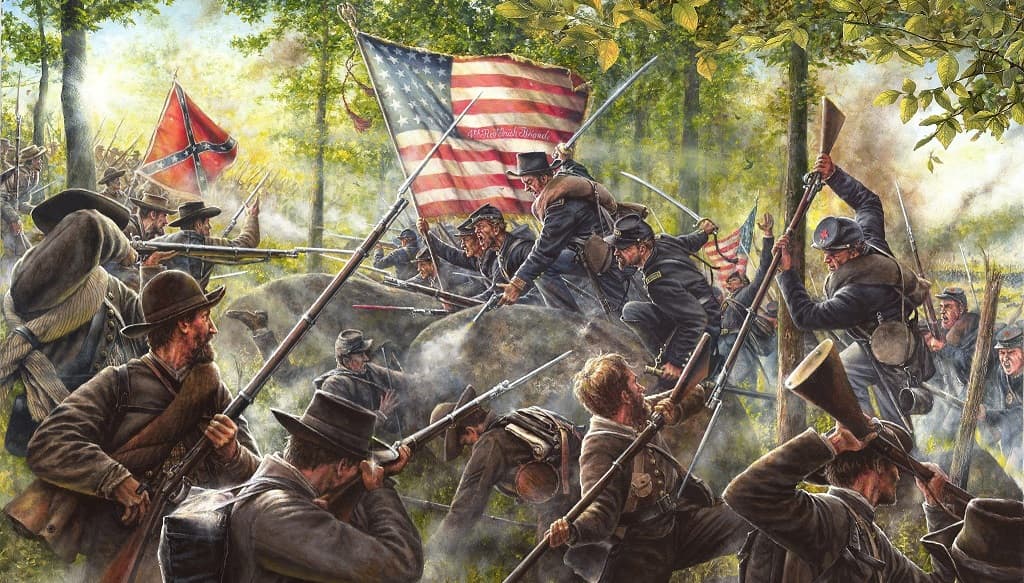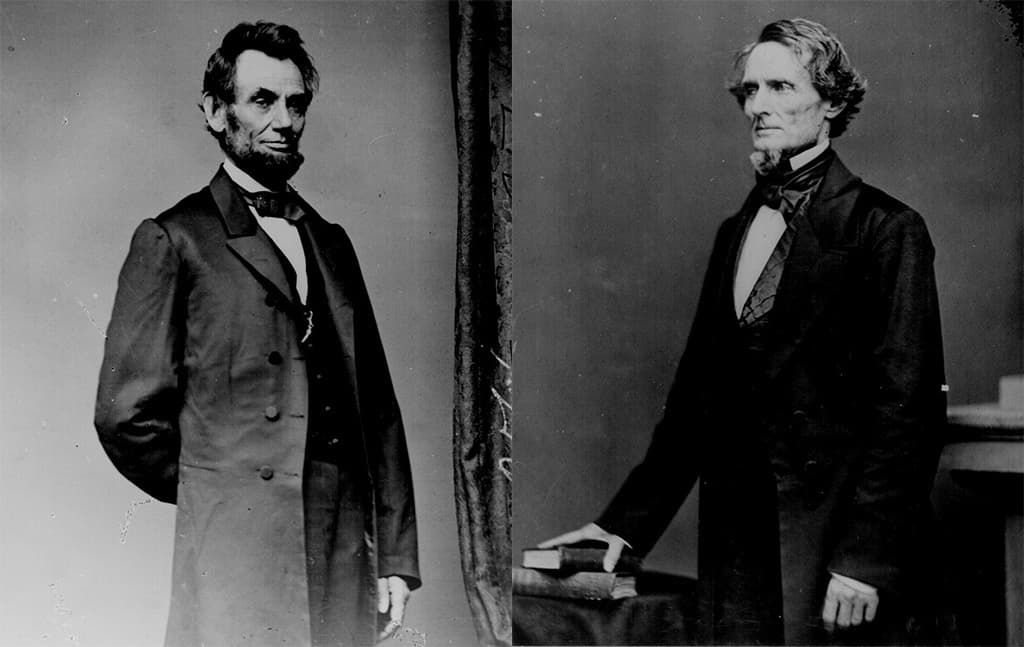The American Civil War (1861-1865), also called the War of the North and the South, has gone down in history as the largest and bloodiest conflict on the American continent. In this article, we will tell you how the war began, developed and how it ended, which forever changed the United States of America.
In the early 1860s, a series of sharp political, economic and ethical contradictions arose between the North and South of the United States, which led to the split of the country.
The northern states were inhabited mainly by enterprising people from the bottom. Emigrants from all over the world flocked here in search of a better life. They developed industry, built large cities, built railways. The northern states guaranteed personal freedom to everyone and sought to create a capitalist state with strong centralized power.

Planters lived in the South, wealthy descendants of the European aristocracy. They owned vast agricultural lands, for the cultivation of which they used slaves. Southerners led a measured life away from big cities and adhered to conservative views. Politics in the South was based on the principle of “do what you want, but do not interfere with others” – each state, in fact, was an independent state.
Background of the American Civil War
The causes of the American Civil War can be divided into three groups.
1. Political controversy
The population of the Northern states was replenished with free emigrants, and the South with slaves imported from abroad. This led to the fact that only a quarter of the population of the Southern states had the right to vote by the early 1860s. Southerners feared that with such dynamics, all controversial political issues in Congress would be decided in favor of the North by a majority vote.
In addition, the central government located in the North sought to extend influence to all states, while the Southern Territories wanted to maintain local self-government.
2. Economic controversy
The entire industry of the country was concentrated in the North, while cotton, sugarcane, tobacco and other industrial crops were harvested in the South. For a long time, the Southern states supplied raw materials to the North, where local manufacturers processed it and exported goods. However, at some point, the planters realized that it was much more profitable to trade with Europe without intermediaries. The factory owners of the North risked being left without supplies, and their goods in the South were being supplanted by European ones. Wanting to protect the domestic market, the government imposed huge taxes on trade with Europe, causing discontent among the Southerners.
Free access to homeschool classes for 7 days
With us you can learn at your own pace, focus on your favorite subjects and connect with peers around the world.
Try for free
3. Attitude towards slavery
All agriculture in the South was based on slave labor, while the use of unskilled slaves in factories was inefficient. The industrialists of the North needed free laborers and advocated the abolition of slavery. For the Southern planters, this would mean the collapse of the entire economic system built on free labor.
The moral side of the issue was also important: many public figures in America criticized slavery as an inhuman relic of the past and demanded its abolition.
American split
In 1860, Abraham Lincoln became President of the United States. He ran for the Republican Party, which advocated the abolition of slavery and support for the country’s home market. The coming to power of Lincoln provoked the Southern states to take decisive action.

On December 20, 1860, South Carolina announced its secession from the United States. Within months it was joined by North Carolina, Mississippi, Alabama, Georgia, Louisiana, Tennessee, Arizona, Texas, Virginia, Arkansas and Florida.
These states organized a new state – the Confederate States of America (CSA) with its capital in Richmond. They adopted a new constitution and elected Jefferson Davis as president, declaring that in the CSA “slavery will last forever.” All of Lincoln’s proposals to discuss the situation at the negotiating table were met with a refusal. The country was split in two. An armed conflict was brewing.
